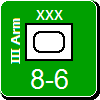IronDuke_slith
Posts: 1595
Joined: 6/30/2002
From: Manchester, UK
Status: offline

|
quote:
ORIGINAL: Gunhawk
quote:
ORIGINAL: KG Erwin
To set the record straight, the US Army had more amphibious landings than the USMC in the Pacific. However, the toughest assaults, such as Iwo Jima and Peleliu, were undertaken by the USMC, with some support by the army on both landings. In the case of Iwo Jima, the USMC was supported by flame tanks of the US Army. No USA infantry took part. I have no intention of denigrating the Army's part in winning the Pacific War, OK? However, the Marines had six divisions fighting in the PTO, and their losses were the equivalent of one entire division.
Now, as far as launching the first US ground offensive of WWII, the 1st Marine Division holds that distinction, landing on Florida Island and Guadalcanal nine months to the day after the attack on Pearl Harbor. Army units landed on Guadalcanal in October 1942, two months after the Marines.
I have no particular agenda here as I my father and four uncles fought in WWII in three different branches, but I don't see why the USMC should be singled out as being in any way better or more interesting than the USN or USA. My father was wounded and MIA during the Battle of the Bulge. My uncle Andrew, who was in the US Army Signal Corp was killed in France. My uncle Paul, who was in the USMC, fought at Iwo Jima. My uncle Walter, who was in the USN on the Destroyer Ault, was at the naval battle of Okinawa. His DD was hit by a Kamikazi. You can read about that if you wiki the DD Ault. My uncle Earl lost his thumb on a carrier in the Pacific. If you're keeping count here that's one dead and two wounded out of five, and only one was a Marine, and he came through it without a wound. So the USMC certainly were not exclusive when it came to heavy fighting and casualties.
In my experience, this is a minefield of a subject, since the USMC evokes particular attachment and fondness from its veterans and/or "Fanboys" (in the nicest possible sense of the word).
However, I would concur with your point of view. The USMC has been somewhat lionised post war, but I've never seen the experiences of men on Guadalcanal as being worse than those of the men in the Hurtgen. I've never seen Pelieu as intrinsically worse than conditions around Bastogne or parts of Italy.
Tarawa was carnage, but was it really worse than sections of Omaha beach? Marine units often performed well when hit hard, but was their performance any better than the airborne units who fought a thousand ad hoc actions in small groups all over Normandy in 1944 after a series of mis drops?
The Japanese were tough and generally fought to the last man. However, they were not nearly as tactically skilled or well armed as the Wehrmacht and outside of a handful of men who reached Okinawa, and the reinforcements that reached Guadalcanal, Japanese forces assaulted by Marines hardly ever received reinforcements or possessed the strength to launch divisional sized counter strokes.
Jungle terrain was ideal for defence, but then so was the Bocage and the mountains of Italy, and the Japanese didn't have MG42s, large artillery parks or much in the way of automatic weaponry or tanks.
The reason the Pacific seems ill served for land warfare games is that it was largely a martime theatre, where land operations were generally subordinate to Naval or air operations. It was the opposite in the west.
I'd argue it's also because there's only so much fun to be had blowing up bunkers and killing all the inhabitants. The small size of the battlefields together with the huge amounts of ordnance the Americans generally employed meant it simply wouldn't be as much fun tactically as a western meeting engagement, and no fun at all operationally (from a land perspective).
None of this is designed to detract from the bravery of those who served against the Japanese, but merely restore to its rightful place, the bravery of those who faced the Wehrmacht.
Regards,
ID
_____________________________
|
 Printable Version
Printable Version







 .
. 











 New Messages
New Messages No New Messages
No New Messages Hot Topic w/ New Messages
Hot Topic w/ New Messages Hot Topic w/o New Messages
Hot Topic w/o New Messages Locked w/ New Messages
Locked w/ New Messages Locked w/o New Messages
Locked w/o New Messages Post New Thread
Post New Thread